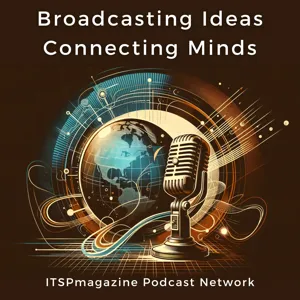Guest: Cem Dilmegani, Principal Analyst at AIMultiple [@aimultiple]
On LinkedIn | https://www.linkedin.com/in/cem-dilmegani/
On Twitter | http://twitter.com/dilmegani
____________________________
Host: Sean Martin, Co-Founder at ITSPmagazine [@ITSPmagazine] and Host of Redefining CyberSecurity Podcast [@RedefiningCyber]
On ITSPmagazine | https://www.itspmagazine.com/itspmagazine-podcast-radio-hosts/sean-martin
____________________________
This Episode’s Sponsors
Imperva | https://itspm.ag/imperva277117988
Edgescan | https://itspm.ag/itspegweb
___________________________
Episode Notes
In this podcast episode, Cem Dilmegani and Sean Martin discuss the various types of fraud that exist and how machine learning can be utilized by both fraudsters and companies to outsmart each other.
The conversation delves into the world of fraud and its impact across various domains, from financial systems to advertising and even healthcare. The discussion highlights how fraudsters are using sophisticated techniques, such as machine learning and automation, to bypass rules-based systems and carry out illicit transactions or manipulate user behavior.
The conversation shifts to the financial services industry, where Cem explains how illicit actors might use automation to transfer funds through smaller transactions to avoid detection or bypass sanctions. They also discuss the challenges faced by banks in identifying fraudulent transactions and the complexities involved when dealing with nation-state actors.
Sean brings up the concept of open-source intelligence (OSINT) in the cybersecurity world and wonders if there's a similar database for fraud rules and vulnerabilities in the financial world. Cem explains that while OSINT might not be as powerful in the world of fraud, fraudsters can still find ways to exploit systems and bypass controls.
Throughout the conversation, intriguing use cases are presented, such as ad fraud in the B2B tech industry, where competitors employ machine-generated clicks and utilize bots to drain marketing budgets, or the concept of "feature fraud," where malicious actors manipulate user feedback to drive companies in the wrong direction.
The episode also delves into the challenges faced by the healthcare industry, including insurance fraud, where patients are overcharged for services or billed for therapies they never received. In the financial services realm, fraudsters resort to account takeovers, complex transaction models, and even shell entities to bypass security measures.
The discussion also highlights the ever-evolving world of fraud, emphasizing the need for businesses and industries to leverage advanced technologies, like AI and machine learning, to stay ahead of the curve and protect themselves from these sophisticated threats. This episode is a must-listen for anyone interested in understanding the simple complexities of fraud and the countermeasures that can be employed to mitigate its impact.
Tune in now and stay ahead of the curve!
____________________________
Watch this and other videos on ITSPmagazine's YouTube Channel
Redefining CyberSecurity Podcast with Sean Martin, CISSP playlist
📺 https://www.youtube.com/playlist?list=PLnYu0psdcllQZ9kSG7X7grrP_PsH3q3T3
ITSPmagazine YouTube Channel
📺 https://www.youtube.com/@itspmagazine
Be sure to share and subscribe!
____________________________
Resources
Cloud Security Podcast: https://www.cloudsecuritypodcast.tv
____________________________
To see and hear more Redefining CyberSecurity content on ITSPmagazine, visit:
https://www.itspmagazine.com/redefining-cybersecurity-podcast
Watch the webcast version on-demand on YouTube: https://www.youtube.com/playlist?list=PLnYu0psdcllS9aVGdiakVss9u7xgYDKYq
Are you interested in sponsoring an ITSPmagazine Channel?
👉 https://www.itspmagazine.com/sponsor-the-itspmagazine-podcast-network






